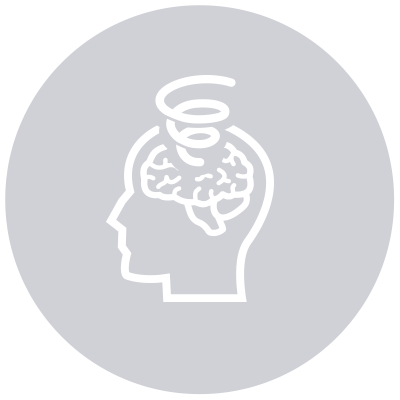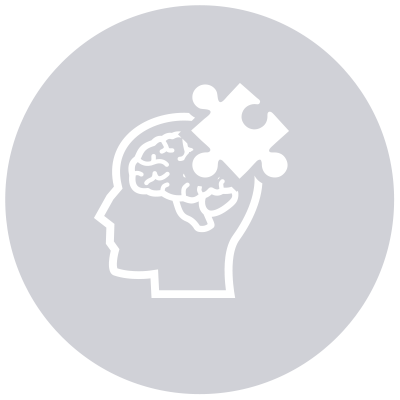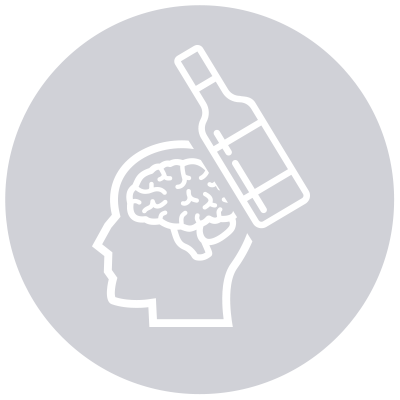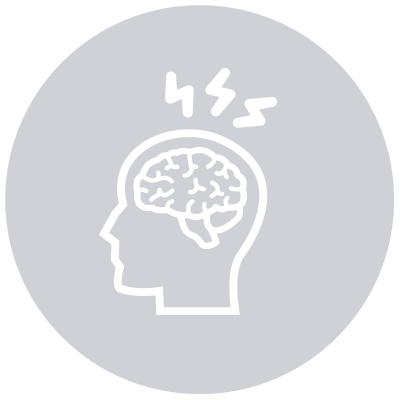NEURODEVELOPMENTAL DISORDERS UNIT
The Neurodevelopmental Disorders Unit is staffed by professionals from the fields of psychology, neuropsychology and paediatrics, with more than 15 years of experience in child and adolescent diagnosis and intervention. It includes the Foetal Alcohol Spectrum Disorder Unit (UneSAF), which has been operational at barnaclínic+ since 2018.
Neurodevelopmental disorders are characterised by deficits that affect the emotional, social and academic functioning of the individual. They share a large number of symptoms (symptomatic comorbidity) and in terms of treatment, they benefit from similar intervention strategies and programmes. Even so, the therapeutic objective of the unit is to design intervention programmes tailored to the individual needs of each person.
Do you wish to make an appointment with our professionals at the barnaclínic+ Neurodevelopmental Disorders Unit or would you like a second opinion?
Complete el formulario que encontrará presionando en el botón a continuación. Una vez hecha su petición, nos pondremos en contacto con usted, intentando respetar al máximo sus preferencias.
DIAGNOSIS OF NEURODEVELOPMENTAL DISORDERS
The diagnosis of Neurodevelopmental Disorders begins with an exhaustive interview with the patient and with his/her parents or legal guardians. The purpose of the interview is to collect relevant clinical information on the difficulties faced with a view to designing a good intervention plan.
This information will be complemented with that obtained from behavioural scales and neuropsychological tests.
TREATMENT OF NEURODEVELOPMENTAL DISORDERS
Neurocognitive and behavioural disorders have a significant impact on the life of the sufferer and their family, and therefore require professional support of varying degrees to overcome or compensate for them. The prognosis depends, to a large extent, on the adequacy of the assessment process and the intervention programme.
The different treatment options for Neurodevelopmental Disorders are cognitive, behavioural and/or psychoeducational.
The intervention tools used by the professionals of the Neurodevelopmental Disorders Unit are based on scientific evidence and combine different application channels (manipulative, audiovisual, etc.) in order to plan dynamic therapeutic sessions.
TEACHING AND RESEARCH
In addition to its clinical work, the Neurodevelopmental Disorders Unit is active in the scientific field with the conception of an innovative high-tech tool, called Mental XR®.
Mental XR® is a project that was conceived as a diagnostic app for FASD, and for intervention in FASD, ADD/ADHD, ASD and BD, which undoubtedly improves adherence to the treatment of Neurodevelopmental Disorders through Immersive Virtual Reality.
It is also involved in research through the Grup de Recerca Infància i Entorn (GRIE - Childhood and Environment Research Group), with more than 15 years of experience in the field, and is a national and international benchmark in clinical research on alcohol exposure during pregnancy.
WHAT WE OFFER
VISITS PACK |
|
|
1. First visit: initial visit with parents or legal guardians. Collection of relevant clinical information. |
60 min. |
|
2. Weekly follow-up visits: therapeutic intervention visits with the child or teenager. |
45 min. |
|
3. Follow-up visit with parents or legal guardians: therapeutic follow-up visit and family guidelines. |
60 min. |
|
4. Neuropsychological assessment visit: application of specific tests to assess skills and/or reach a diagnosis. |
1-4 h. |
|
5. School visit: coordination visit with the teacher and/or educational professionals involved. |
60 min. |
FASD PACK |
|
|
1. Pre-adoption: initial visit prior to adoption that includes general information about adoption, risks, report evaluation, images, videos, etc., and counselling prior to adoption |
60 min. |
|
2. Post-adoption: this is the visit after adoption, almost exclusively to confirm or rule out an FASD diagnosis, which includes an evaluation of the reports, physical assessment, psychological tests, devolution tests, etc., follow-up counselling, coordination with professionals |
60 min. |
|
3. FASD diagnosis: includes prior visit, psychologist, paediatric and devolution visits, as well as coordination with professionals |
120 min. |
FIRST VISIT |
|
|
1. Psychology |
90 min. |
|
2. Non-specific assessment: for example, second opinion, first visit after diagnosis of FASD, etc. |
60 min. |
|
3. Post-adoption |
60 min. |
FOLLOW-UP VISIT |
|
|
1. Psychology (weekly, fortnightly or monthly) 2. Non-specific assessment 3. Coordination (school, professionals, etc.) |
60 min. |
Do you need advice or guidance on Neurofevelopmental Disorders but are not in Spain or are unable to travel?
Solicite una televisita con nuestros profesionales, le atenderán por vídeoconferencia, sin moverse de casa y cuando le vaya bien. Complete el formulario que encontrará en el botón a continuación y nos pondremos en contacto con usted en poco tiempo.
Blog Visual TEAF
1ª Subvención privada a proyectos TEAF
Queridos amigos: como sabéis, Visual TEAF trabaja incansablemente para mejorar la calidad de vida de los niños, chicos y jóvenes […] Origen
Arte TEAF
El viernes 19 de octubre de 2018, coincidiendo con el Día Internacional del Voluntario Telefónica #DIVT, realizamos el taller ARTE – TEAF. […] Origen
TEAF, Familias, caballos, fiesta. 9 del 9
Por vez primera hemos celebrado el Día Mundial del TEAF en Madrid. El día Mundial del FASD (TEAF en inglés). […] Origen




